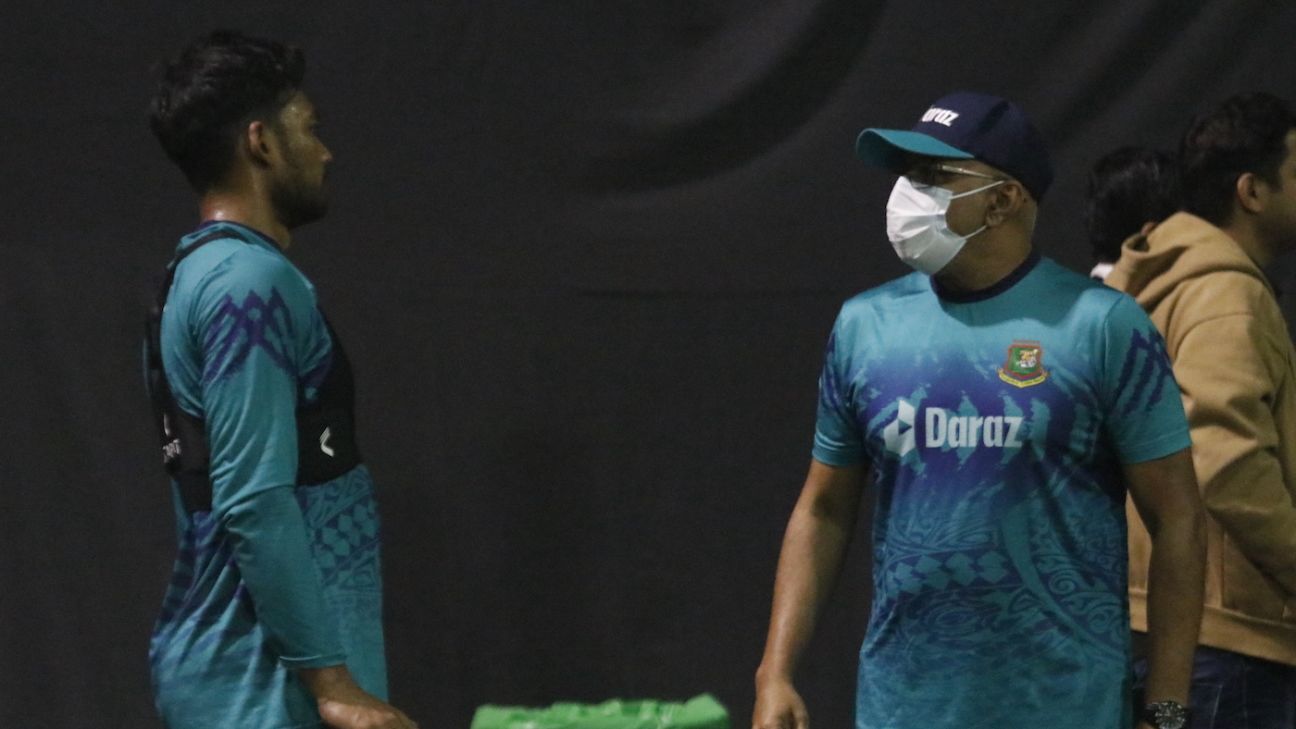“Our doctor has kept a close eye on players. Some of the players didn’t turn up for practice because they are asthmatic, so they stayed in indoors,” Hathurusinghe said. “And even for practice, we’re very conscious. We train what we have to train, and they go back into the dressing room. They don’t spend time unless they’re bowling or batting. We have taken some measures to minimise our exposure before the game.”
Hathurusinghe said that while selection for the game would not be influenced by the air quality, the team is wary of the long-term effects of playing in such conditions. “We need to practice and still be careful about the long-term effect of these conditions,” he said. “Air quality is affecting both teams. It is not ideal. But we have no choice. We have to play in the conditions that’s in front of us.”
“The team selection won’t depend on air quality. It will depend on conditions, our strength and opposition.”
According to the ICC’s guidelines on air quality, as well as a pulmonologist (lung specialist) whom the organisers have been consulting, an Air Quality Index (AQI) reading of below 200 is considered safe for play in most cases. A higher AQI could put play in jeopardy but it is only a guideline rather than a hard cut-off.
The AQI reading in the vicinity of the ground, the Arun Jaitley Stadium, was over 400 on Sunday afternoon, having hit 500 at some points during the day. An air emergency had been declared in Delhi on Thursday, as the AQI rose above 400 in several places across the city, forcing the government to close schools for two days and impose restrictions on construction and vehicle traffic. AQI levels in areas of the city are expected to be in the severe category till Tuesday, November 7.
An ICC spokesperson told ESPNcricinfo on Saturday that the situation was being monitored. “The ICC and our hosts the BCCI take the well-being of all participants seriously and are monitoring the air quality in Delhi,” the spokesperson said. “We are taking expert advice to assess the situation.”
BCCI staff have been taking air-quality readings from handheld devices at the ground. They will continue to do so leading into the game to determine whether the air quality is at a safe level for play. The organisers will also undertake mitigation measures such as turning on the sprinklers before play, which is expected to help lower pollution levels in the immediate vicinity of the ground. They will also ask players to remain inside their dressing rooms, where air purifiers will be operational, rather than in the dugout. ESPNcricinfo understands that match officials will treat the air pollution just as they would the weather, in deciding whether conditions are fit for play or not, and taking the players off the field when needed.
